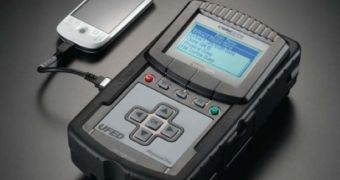The Michigan State Police (MSP) denies having used mobile phone forensics equipment to bypass people's Fourth Amendment protections and claims it only uses the devices in criminal cases.
The American Civil Liberties Union (ACLU), one of the top civil rights watchdogs in US, accused the MSP of dribbling FOIA (Freedom of Information Act) requests regarding the use of these devices.
According to ACLU, the MSP uses forensics equipment manufactured by a company called CelleBrite, which is capable of extracting a wide variety of data from mobile handsets, including phonebooks, text messages, call logs, deleted messages, audio recordings, videos, images and the entire memory card content.
The civil rights watchdog claims these devices are capable of downloading data from cell phones without the knowledge of their owners and might have been abused to bypass Fourth Amendment protections against unreasonable searches and seizures.
"A device that allows immediate, surreptitious intrusion into private data creates enormous risks that troopers will ignore these requirements to the detriment of the constitutional rights of persons whose cell phones are searched," the ACLU wrote in a recent letter [pdf] sent to the MSP.
The organization claims that MSP asked for $544,680 in order to provide the records covered by its first FOIA request and when it filed more restricted requests it was told there is no data matching those periods.
ACLU says it asked the MSP for help to restrict FOIA requests in a way that would result in the disclosure of meaningful data, but it was met with refusal.
MSP does not agree and claims it has worked with ACLU to reduce the cost of its initial FOIA request since 2008. "To date, the MSP has fulfilled at least one ACLU FOIA request on this issue and has several far-lower cost requests awaiting payment to begin processing," the department said, according to the Tech Herald.
Furthermore, it stresses that data extraction devices (DED) are only used when a warrant is issued or when consent is given. ACLU, however, notes that "law enforcement officers are known, on occasion, to encourage citizens to cooperate if they have nothing to hide."
"The department’s internal directive is that the DEDs only be used by MSP specialty teams on criminal cases, such as crimes against children…The MSP does not possess DEDs that can extract data without the officer actually possessing the owner's mobile device," the department adds.

 14 DAY TRIAL //
14 DAY TRIAL //